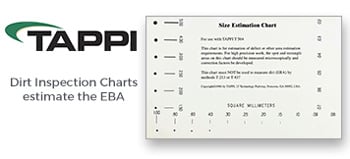Influence of tensile straining and fibril angle on the stiffness and strength of previously dried kraft pulp fibers, TAPPI JOURNAL July 2018
ABSTRACT: It has long been known that in individual wood fibers, the tensile mechanical properties are heavily determined by the nature of the cellulose chains in the fibers. Both elastic tensile modulus and strength are directly related to the fibril angle, which is the steepness with which the cellulose chains wind their way around the fiber in the secondary wall of the middle layer, named the S2 layer. Classic work from the 1970s measured modulus and strength in wood fibers as a function of the fibril angle and compared the results with theoretical models. The measurements were hampered by the presence of defects in the fibers, some which occurred naturally and others which resulted from pulp processing. In this study, we performed more accurate measurements of strength and modulus in single fibers of radiata pine by loading the fibers in cycles, gradually pulling some of the defects out of the fibers in an attempt to obtain defect-free values of modulus and strength. We then plotted these properties against measured fibril angle and compared our results with theoretical models. The results show that even when the fiber had reached maximum load before fracture, at a given value of fibril angle, it still had a measured modulus that is around half the theoretically expected value. The results suggest that the load required to fully remove defects from the fibers may be larger than the fibers can bear before fracturing.
Application: Information contained in this investigation will help paper researchers and engineers better understand the relationship between processing defects and mechanical properties of single wood fibers.
TAPPI conference proceedings and presentations, technical papers, and publication articles provide technical and management data and solutions on topics covering the Pulp, Paper, Tissue, Corrugated Packaging, Flexible Packaging, Nanotechnology and Converting Industries.
Simply select the quantity, add to your cart and your conference paper, presentation or article will be available for immediate download.





